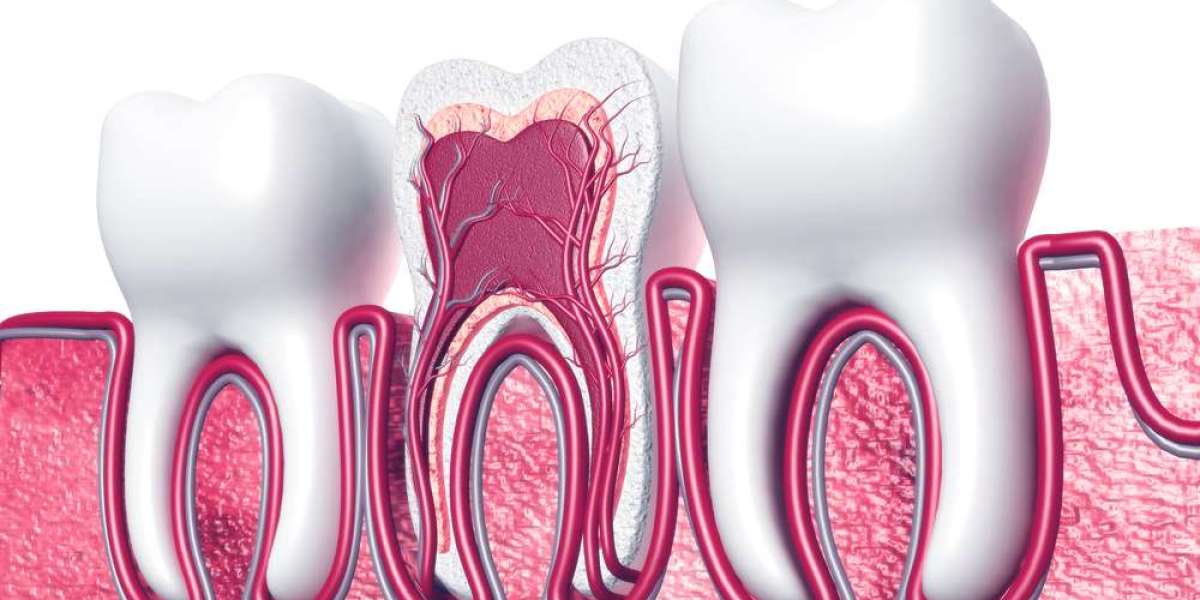If you’re suffering from tooth pain or decay, choosing the right treatment can be overwhelming. In Islamabad, two of the most common solutions recommended by dentists are Root Canal Treatment in Islamabad and dental crowns. Both serve specific purposes, and knowing when to opt for one—or both—can be crucial in preserving your dental health and avoiding future complications.
This comprehensive guide will help you understand the differences, benefits, and decision-making factors for each treatment, tailored to the dental standards and practices available in Islamabad.
Understanding Root Canal Treatment
Root canal treatment (RCT) is a procedure that removes infected or inflamed pulp from inside the tooth. It is commonly performed when the tooth’s nerve is compromised due to decay or trauma.
When Do You Need a Root Canal?
Persistent toothache or sensitivity
Abscess formation or swelling
Deep cavities reaching the pulp
Cracked or injured teeth
Procedure Overview
Diagnosis: X-rays are used to identify the infected area.
Anesthesia: Local numbing ensures pain-free treatment.
Pulp Removal: Infected tissue is cleaned out.
Canal Shaping: The canals are cleaned, shaped, and disinfected.
Sealing: The canals are filled with biocompatible material.
Restoration: A filling or crown is placed to protect the tooth.
What Is a Dental Crown?
A dental crown is a cap that covers a damaged or weakened tooth. It restores strength, function, and appearance. Crowns are often recommended after a root canal but can also be used independently when a tooth is chipped, worn, or discolored.
Common Uses of Crowns
Protecting a tooth after root canal
Covering a dental implant
Holding a dental bridge in place
Improving cosmetic appearance
Restoring a broken or worn tooth
Root Canal vs. Crown: Key Differences
| Feature | Root Canal Treatment | Dental Crown |
|---|---|---|
| Purpose | Removes infection | Restores strength and shape |
| Invasive Level | Moderate | Low to moderate |
| Pain Relief | Yes | Not typically for pain relief |
| Cosmetic Benefit | Indirect | High |
| Cost | Moderate to high | Moderate to high |
| Time Required | 1–2 sessions | 1–2 sessions |
Do You Need Both?
In most cases, especially when a molar or premolar is treated, a crown is recommended after root canal treatment. Here’s why:
To Prevent Fracture: Post-RCT teeth are brittle and prone to cracking.
To Restore Function: Crowns allow normal biting and chewing.
To Enhance Durability: Crowns protect the tooth for long-term use.
However, in cases involving front teeth or minimal structural damage, a filling may suffice.
Choosing the Right Treatment in Islamabad
Dentists in Islamabad follow global dental care protocols. Whether you visit a clinic in F-10, Blue Area, or Bahria Town, professionals will assess:
The extent of tooth decay
Structural integrity of the remaining tooth
Functional demands (e.g., chewing pressure)
Aesthetic preferences
Budget considerations
Benefits of Root Canal Treatment in Islamabad
Pain-Free Procedures: Advanced anesthesia and rotary instruments make the process smooth.
Modern Clinics: Equipped with digital X-rays, microscopes, and sterilization systems.
Cost-Effective: Saves natural teeth and prevents future dental work.
Experienced Endodontists: Trained specialists perform complex procedures confidently.
Cost Comparison in Islamabad
| Treatment | Price Range (PKR) |
|---|---|
| Root Canal (Single Tooth) | 8,000 – 15,000 |
| Dental Crown (Porcelain) | 8,000 – 20,000 |
| Root Canal + Crown Combo | 15,000 – 30,000 |
Note: Prices vary depending on clinic location, dentist experience, and crown material.
Crown Materials Available in Islamabad
Porcelain-Fused-to-Metal (PFM)
Durable and moderately priced
Slightly opaque in appearance
Zirconia
Aesthetic and strong
Ideal for front and back teeth
More expensive but long-lasting
Gold/Metal Alloy
Extremely durable
Less commonly used for aesthetic reasons
Pros and Cons of Root Canal Only
Pros:
Retains natural tooth
Removes infection
No need for extraction
Cons:
Tooth may be fragile
Risk of fracture without a crown
May require retreatment if reinfection occurs
Pros and Cons of Dental Crowns
Pros:
Enhances appearance
Protects weakened tooth
Long-lasting with proper care
Cons:
Not a standalone cure for infection
Requires tooth reshaping
Cost may be a factor
Real Patient Scenarios
Case 1: RCT Without Crown
Zoya, 29, from G-11, underwent root canal therapy for a front tooth. Due to its location and minimal damage, her dentist opted for a filling without a crown. Two years later, the tooth remains healthy and intact.
Case 2: RCT With Crown
Hamza, 35, from DHA Islamabad, needed a root canal on a molar. A zirconia crown was placed afterward. The tooth has full function and no complications a year later.
Case 3: Crown Only
Mrs. Ameen, 52, from F-8, chipped a tooth while eating. No infection was found, so the dentist recommended a crown only to restore the appearance and function.
Maintenance Tips for Both Treatments
Brush twice daily with fluoride toothpaste.
Floss daily to remove plaque.
Avoid chewing hard foods like ice or nuts with treated teeth.
Visit your dentist every 6 months for check-ups.
Report any discomfort early to prevent complications.
Common Myths Debunked
“RCT is very painful.”
Reality: It’s no more painful than getting a filling today.
“You don’t need a crown after RCT.”
Reality: Molars and premolars need added protection from breakage.
“Crowns are only cosmetic.”
Reality: They provide vital structural support and prevent fractures.
What to Ask Your Dentist
Will I need both a root canal and crown?
What crown materials do you recommend?
How long will each step take?
What are the costs involved?
What are the long-term care requirements?
Final Verdict: Which Should You Choose?
Choose Root Canal Treatment if you have an infected, decayed, or painful tooth that can still be saved.
Add a Crown if the tooth is a molar/premolar or structurally weak.
Choose a Crown Only if the tooth is damaged but not infected.
For most patients, the ideal solution involves both procedures. Getting a crown after a root canal ensures durability and minimizes the risk of reinfection or breakage.
Conclusion
Deciding between a Root Canal Treatment in Islamabad and a dental crown—or both—should be based on your specific dental condition, professional evaluation, and long-term oral health goals. With modern dentistry options available throughout the city, including high-quality materials and expert care, there’s no reason to delay treatment.
Whether your concern is preserving a damaged tooth, restoring its appearance, or eliminating pain, you can trust your local Islamabad dentist to guide you toward the best solution tailored to your smile.








